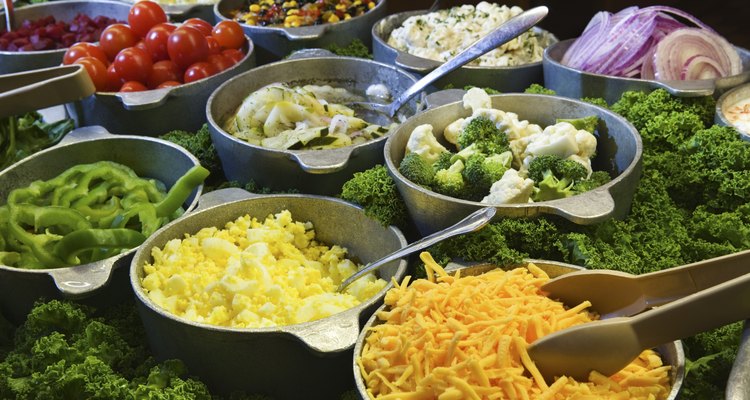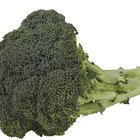
To call a food palatable means that it is pleasing or agreeable to the palate or taste of an individual. Palatability is not static: it is always changing, based on the state of the individual, especially in regards to the time of food consumption. Palatability also is not something that is permanent. People can acquire a taste for certain flavors, and some flavors may actually become less palatable over time.
Palatability as a Response to Human Needs
Humans need food and liquids to live because they provide energy and cleanse the system. These needs, often referred to as homeostatic needs, directly correlate with palatability because foods and liquids that appease people's palatability meet their homeostatic needs. All humans find at least some flavors palatable. This is a basic biological trait which is necessary for survival. Without the ability to find any food palatable, humans would not be able to meet their energy needs.
Food Deprivation
One of the main factors influencing palatability is food deprivation. This deprivation can be a period of only a few hours. When someone has not eaten in some time, palatability will be increased to a greater number of foods. In some cases, individuals may even experience increased palatability to flavors that they generally do not even like. This is a natural process occurring daily.
Hedonic Hunger
Hedonic hunger is a phenomenon influencing palatability. Hedonic hunger is the notion that individuals may become preoccupied with food to the extent that it is a frequent thought or urge. It occurs in any short- or long-term absence of food, and the duration and extent of it varies by individual. For all who experience hedonic hunger, however, the effect on the palatability of food is a sharp increase. Some are able to control hedonic hunger by distinguishing between whether they need or want food. However, they still must repress the increased palatability for a variety of foods.
Satiety
The palatability of food decreases after food consumption, and especially after one is extremely full. This is a natural biological process which occurs to let humans know when they are able to stop eating. This process is controlled by a feedback mechanism. When your body recognizes that it is full, the brain sends out a message which becomes a negative feedback mechanism, alerting the rest of the nervous system that palatability can now be decreased. However, extremely palatable foods - which vary based on the preferences of the individual - can circumvent the negative feedback mechanism, and people may choose to continue eating regardless of their satiety.
Related Articles

Intellectual Compatibility in a ...

Five Benefits of Attentive Listening

INFJ & ISFJ Relationships

What Does It Mean When You Have ...

Signs of a Weak Character

How Long Does it Take to Sober Up?

How to Tell Someone With Asperger's ...

Different Kinds of Social Traps

Importance of Perfumes

List of the Top Ten Most Common Emotions

What Is the Progression of a Romantic ...

Principles of Humanitarian Ethics

How to Deal With Someone Who Is Easily ...

Why Are Some People Spineless?

What Are the Benefits of Effective ...

What Vegetables Have Citric Acid?

Can Two Emotionally Unavailable People ...

How to Set the Time on a Timex 1440 ...

Dimethicone Hazards

What Are Barriers to Perception?
References
Writer Bio
Kathryn Stanley is a professional writer for various websites, covering fashion, science, the environment, food and baking, crafts and the arts. She studies psychology and creative writing at the University of Maryland at College Park.
Photo Credits
Thinkstock/Comstock/Getty Images